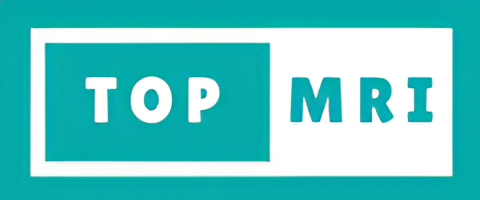
- Home
- Services
- Locations
- MRI Scan
- Greater London Area
- London – Marylebone, W1G 7HE – 3.0 T MRI Scan – £300
- London – Harley Street, W1U 2HX – Open MRI Scan – £500
- Middlesex – Enfield, EN2 8JL – 1.5 T MRI Scan – £300
- West Middlesex – Isleworth, TW7 6AF – 1.5 T MRI Scan – £300
- Surrey – Epsom, KT18 7LX – 1.5 T MRI Scan – £300
- Surrey – Ashford, TW13 3AA – 1.5 T MRI Scan – £300
- Surrey – Guildford, GU2 7XU – 3.0 T MRI Scan – £300
- Kent – Sidcup, Bexley, DA14 6LT – 1.5 T MRI Scan – £300
- North West England
- Manchester – M80 4AN – Open MRI Scan – £500
- Greater Manchester – Manchester, SK8 7NB – 1.5 T MRI Scan – £279
- Greater Manchester – Whythenshaw, M23 9LT – 3.0 T MRI Scan – £300
- Greater Manchester – Stockport, SK2 7JE – 1.5 T MRI Scan – £300
- Cumbria – Cockermouth, CA13 9HT – 1.5 T MRI Scan – £279
- Cumbria – Penrith, CA11 0AH – 1.5 T MRI Scan – £279
- Lancashire – Preston, PR4 0AP – 1.5 T MRI Scan – £279
- Lancashire – Fylde, FY8 1PF – 1.5 T MRI – £300
- North East England
- East Midlands
- East of England
- West Midlands
- South West England
- South East England
- Wales
- Yorkshire and the Humber
- Greater London Area
- CT Scan
- Full Body MRI Scan
- Ultrasound
- MRI Scan
- Patients
- Referrers
- Prices
- 0333 344 1811
info@topmri.com
Cutaneous T-Cell Lymphoma (CTCL)
- Uncategorized
-
Sep 17
- Share post
Cutaneous T-Cell Lymphoma (CTCL): Symptoms, Causes, Diagnosis, Treatment, and Future Outlook.
Disclaimer:
This blog is for informational purposes only and should not be taken as medical advice. Content is sourced from third parties, and we do not guarantee accuracy or accept any liability for its use. Always consult a qualified healthcare professional for medical guidance.
What is Cutaneous T-Cell Lymphoma (CTCL)?
Cutaneous T-Cell Lymphoma (CTCL) is a rare non-Hodgkin lymphoma originating from skin-homing T-cells, comprising 5-10% of skin lymphomas. Main subtypes are mycosis fungoides (MF, 50-70%, indolent) and Sézary syndrome (SS, aggressive with blood involvement). In 2025, ~3,000 US cases annually, median age 50-60, more in men and Black individuals.
Symptoms
Symptoms include itchy, scaly red patches/plaques (early MF), thickened skin (tumors in advanced), erythroderma (full-body redness in SS), enlarged lymph nodes, and B symptoms (fever, weight loss). SS causes severe itching, skin cracking, and infections. Symptoms progress slowly over years.
Causes
Causes involve T-cell mutations, with risk factors like immunosuppression, eczema, or occupational exposures (chemicals). HTLV-1 virus links to rare cases. In 2025, STAT3/JAK mutations are key, with environmental triggers suspected.
Diagnosis
Diagnosis uses skin biopsy with immunohistochemistry (CD4+, CD3+), blood tests for Sézary cells, flow cytometry, and imaging (PET/CT) for staging. Molecular testing for TCR rearrangements confirms clonality. In 2025, NGS identifies mutations for therapy.
Treatment
Early-stage uses skin-directed therapies (topical steroids, phototherapy, radiation). Advanced involves systemic chemotherapy, immunotherapy (mogamulizumab for CCR4+), or targeted therapy (brentuximab for CD30+). SCT for aggressive cases. In 2025, bispecific antibodies show 40% response.
Future Outlook
In 2025, 5-year survival is 80-90% for early MF, 20-30% for SS. Targeted therapies improve advanced survival to 50%. By 2030, CAR-T and epigenetics could achieve 70% survival, focusing on early intervention.
Sources
The information for CTCL is drawn from Mayo Clinic’s “Cutaneous T-cell lymphoma – Symptoms and causes” for symptoms; Cleveland Clinic’s “Cutaneous T-Cell Lymphoma (CTCL)” for understanding; Lymphoma.org’s “Cutaneous T-cell Lymphoma” for symptoms; Healthgrades’s “Cutaneous T-Cell Lymphoma: Symptoms, Causes, Treatments” for causes; AAD’s “Cutaneous T-cell lymphoma: Diagnosis & treatment” for treatment; Johns Hopkins’s “Cutaneous T-Cell Lymphoma | Johns Hopkins Medicine” for symptoms; Lymphoma Action’s “Skin (cutaneous) T-cell lymphoma” for overview; Barnes Jewish’s “Cutaneous T-Cell Lymphoma | Health Library” for details; CL Foundation’s “Cutaneous T-Cell Lymphoma” for subtypes; Duke Health’s “Cutaneous Lymphoma” for treatment.